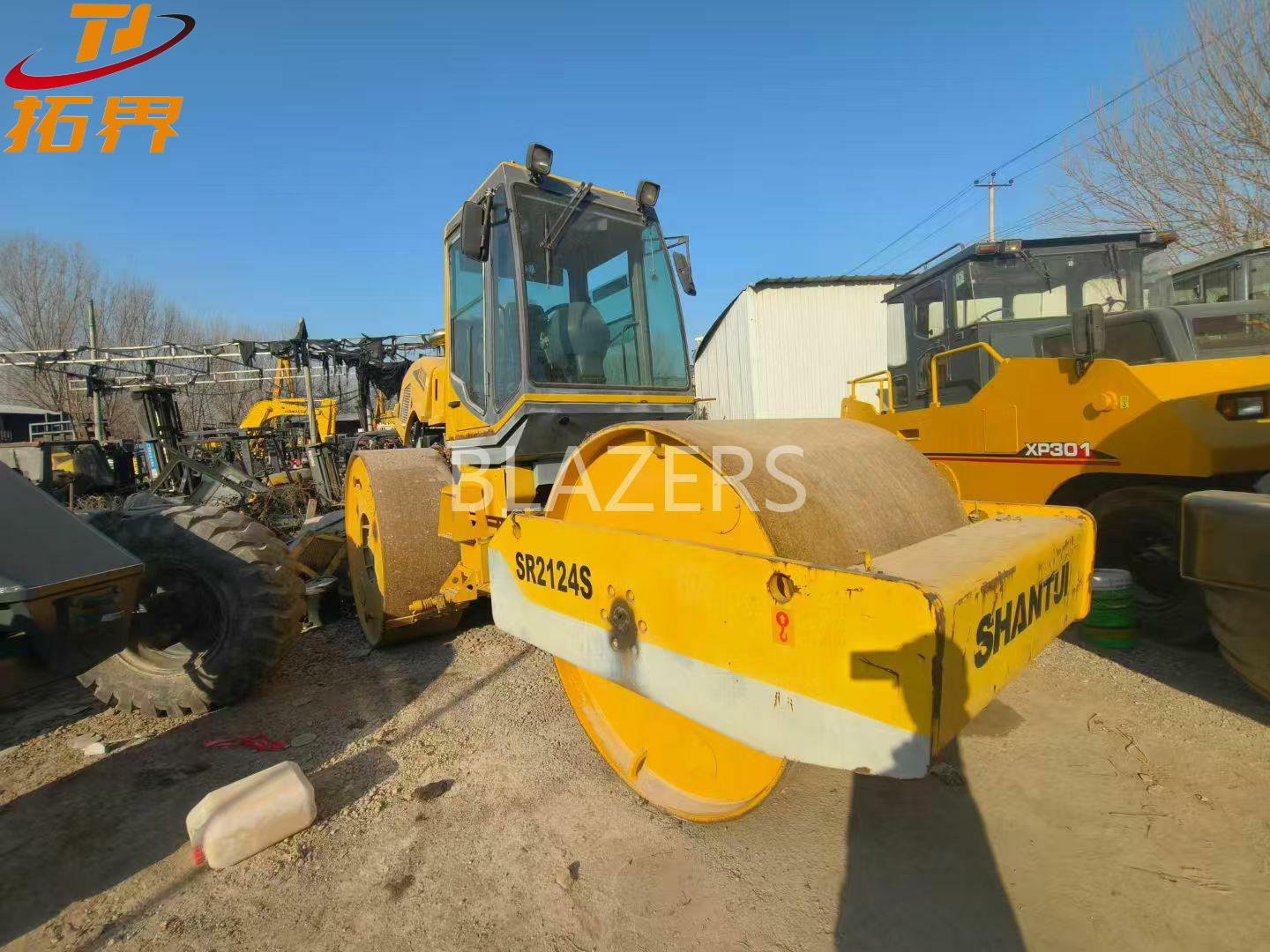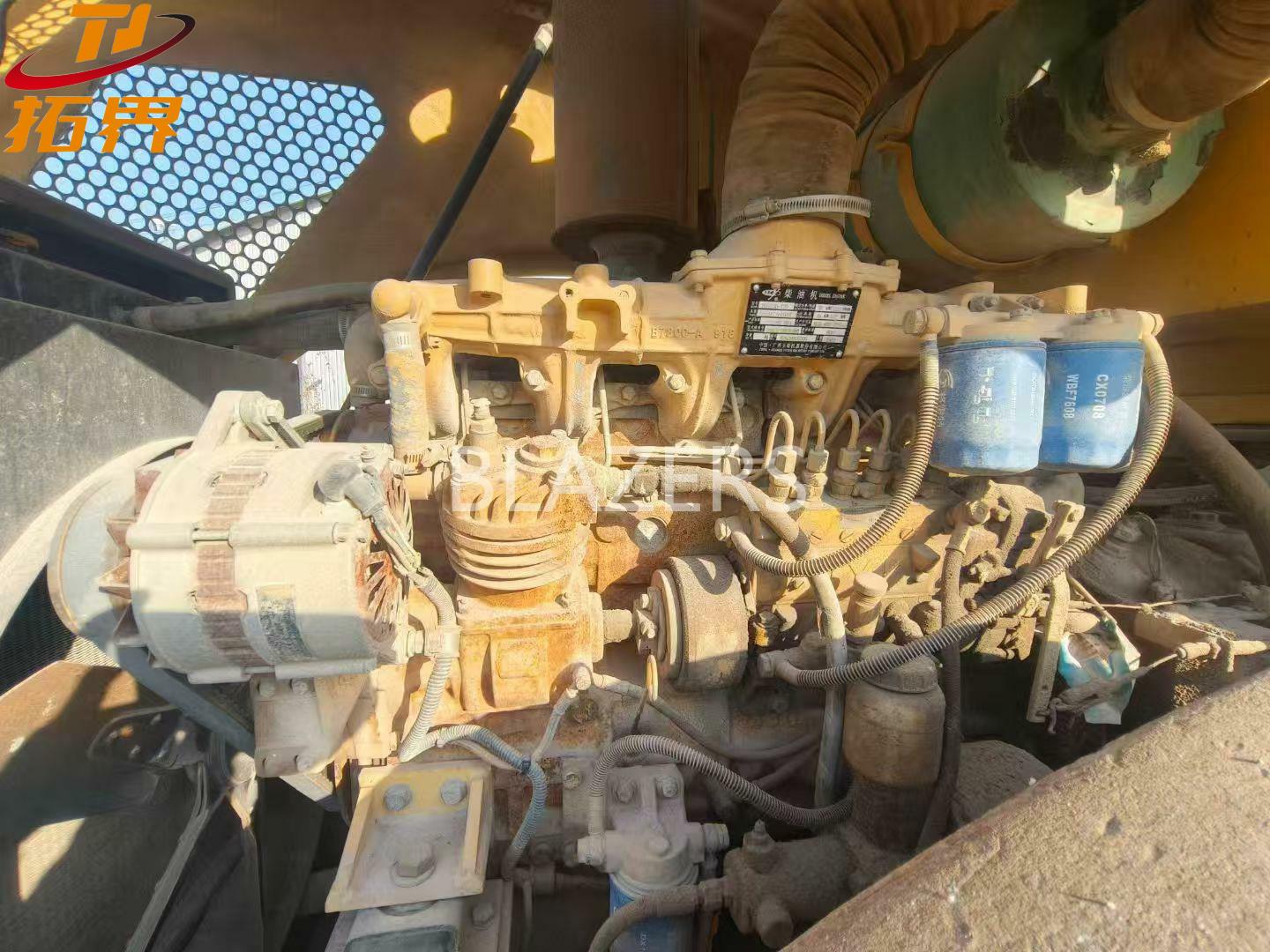The Shantui SR2124S road roller, with its 24-ton powerful engine, efficiently compacts the roadbed and is suitable for heavy-duty road and infrastructure construction scenarios. The double steel wheels are stable and uniform, the hydraulic system is sensitive and durable, and after nine years of use, its performance remains as good as new.
About Shangpu SR2124S double-wheel roller
Narrate
This partner, which has undergone nine years of engineering tests, has traveled across roads, municipal and infrastructure sites, always maintaining a solid 24-ton force to efficiently compact the roadbed. The dual steel wheels operate steadily and evenly, the hydraulic system responds sensitively, and the core components are well maintained. After the entire machine was refurbished, its performance became stable and reliable, and it was immediately deployed to the new battlefield, continuing to provide your construction team with solid quality and excellent value for money.

The essence of the refurbishment is respect, not embellishment. When the industry is accustomed to covering rusty frames with brand-new blue paint, we choose to define the refurbishment as a precise surgical operation. Your engineering team pointed out that there was a 0.3-millimeter gap in the steel wheel bearings? We only replaced that group of bearings instead of the entire transmission system; you planned to use this equipment for construction in the tropical rainforest? We strengthened the heat dissipation module while retaining the intact original hydraulic valve blocks. This restrained refurbishment based on the requirements of the working conditions extends the service life of each machine by five years!
Shangpu SR2124S double-wheel roller Specificaion
Engine Model: Shangchai SC7H180G3
Rated Power: 132 kW @ 2200 rpm
Peak Torque: 780 N·m @ 1600 rpm
Cooling System: Oversized desert radiator (Adapts to 55°C ambient temperature)
Vibration Frequency: 32 Hz- 28 Hz
Amplitude: 1.0 mm-1.8 mm
Impact Energy: 31 kJ/m-48 kJ/m
Optimal Compaction Layer: 80-150 mm 300-500 mm
Drum Dimensions: Ø1,680 mm × 2,180 mm
Gradeability: ≥42%
Turning Radius: ≤6.5 m
Fuel Consumption: ≤13.8 L/h
Fuel Tank: 265 L
Hydraulic Oil Tank: 135 L

Daily Maintenance Checklist for Road Roller
1. Check Fluid Levels & Fuel
Inspect engine oil, hydraulic oil, transmission oil, and coolant levels (using dipstick or sight glass); fuel tank level. In hot weather (like current summer), coolant inspection is particularly critical to prevent engine overheating and shutdown.
2. Inspect Filters & Air Intake System
Check the cleanliness of air filter, fuel filter, and hydraulic oil filter; inspect air intake system for blockages. Lightly tap the air filter to remove dust (replace if severely dirty); ensure the filter element is undamaged. This step prevents contaminants from entering the engine, reducing 80% of early wear risk. At dusty construction sites (e.g., roadwork), daily air filter cleaning significantly enhances equipment efficiency.
3. Inspect Ground Contact Components & Brakes
Check tire/steel wheel pressure and wear (using tire pressure gauge); brake fluid level and braking performance (test by pedal depression); tightness of steel wheel or tire bolts. Daily inspections identify potential issues (e.g., loose bolts), preventing downtime repair costs.
4. Clean Machine & Check Fasteners
Remove mud, asphalt residue, and water stains from the roller’s surface; inspect critical fasteners (e.g., engine mounts, roller connection bolts). Clean with a soft brush or low-pressure water jet to avoid damaging electrical components. Post-cleaning, a tidy appearance improves heat dissipation. During rainy seasons, cleaning prevents corrosion, extending equipment life by 5+ years.
5. Operational Test
Start the equipment; check dashboard indicators (e.g., oil pressure, battery voltage); listen for abnormal noises/vibrations; test steering and compaction functions. Limit runtime to 2–3 minutes; stop immediately for troubleshooting if warning lights activate. Daily tests enable early fault detection (e.g., hydraulic system noise), reducing 30% of unexpected repair costs.